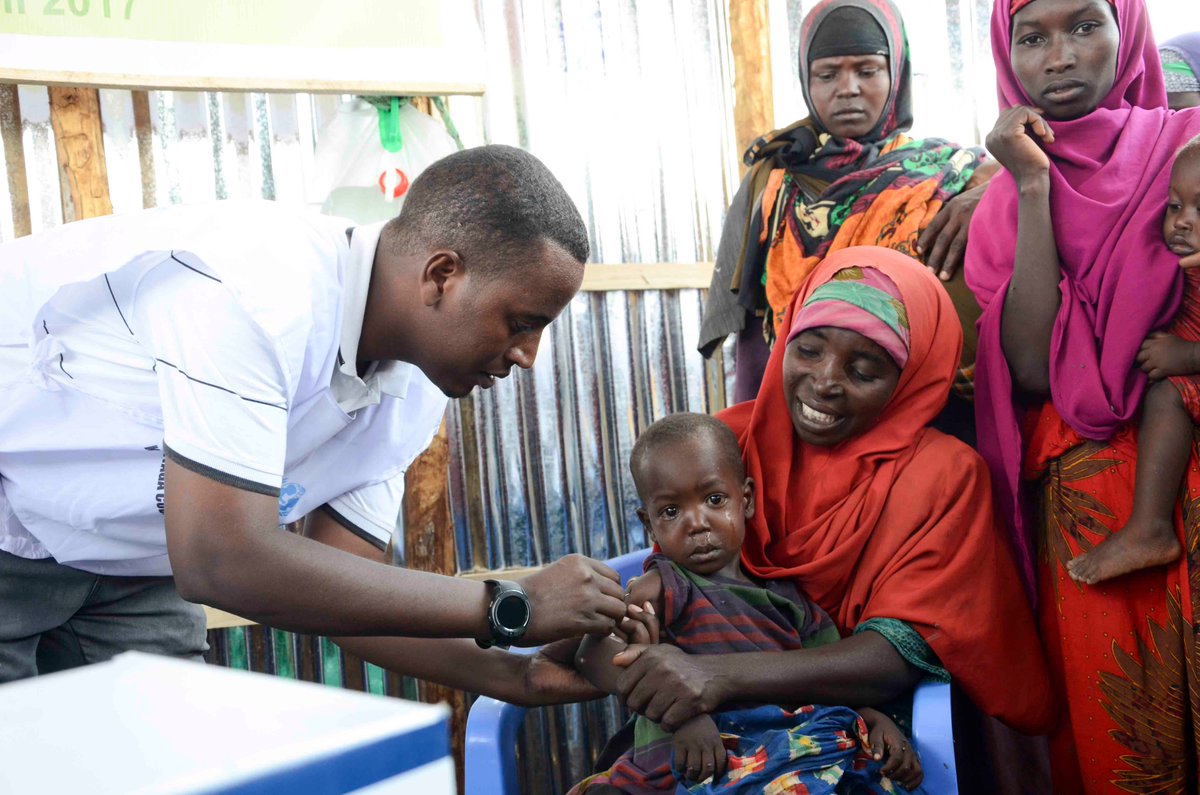More than 350,000 children in Somalia at risk of measles-UNICEF


More than 350,000 children under the age of five in south central and northern parts of Somalia are at the risk of contracting the deadly measles disease, UN children’s agency UNICEF said Tuesday as it kicked off emergency vaccination campaign of 30,000 young children in Baidoa, south western Somalia.
UNICEF said almost 5,700 cases of suspected measles have been reported in the country since January more than the total number of cases in 2016 raising fears the viral respiratory infection could spread further exacerbated by the ongoing drought.
Steven Lauwerier, UNICEF’s Representative in Somalia said in a statement Tuesday all children must receive the vaccine warning failure could be fatal as the drought could make fertile ground for the disease.
“Among vaccine-preventable diseases, none is more deadly than measles,” Steven Lauwerier,” adding, “And we know only too well from the 2011 famine that measles, combined with malnutrition and displacement, is an especially lethal combination for children.” At least 260,000 people died during the 2011 famine with more than half of these being children under the age of five.
Lauwerier noted children suffering from severe acute malnutrition were nine times more likely to die from a disease like measles than healthy children.
Baidoa has been severely affected by effects of the ongoing drought with another deadly disease, cholera claiming several lives in the recent past.
UNICEF said more than 100,000 people had come to Baidoa in search of assistance, including at least 70,000 in March alone.
Measles, a viral respiratory infection that spreads through air and contact with infected mucus and saliva, thrives in congested, unsanitary displacement camps, which have mushroomed across the town and surrounding areas.
The vaccination campaign is targeting 110,000 displaced children below the age five in hotspots across south central Somalia, plus 250,000 children in Somaliland, against the deadly contagious disease, by the end of May, UNICEF said.